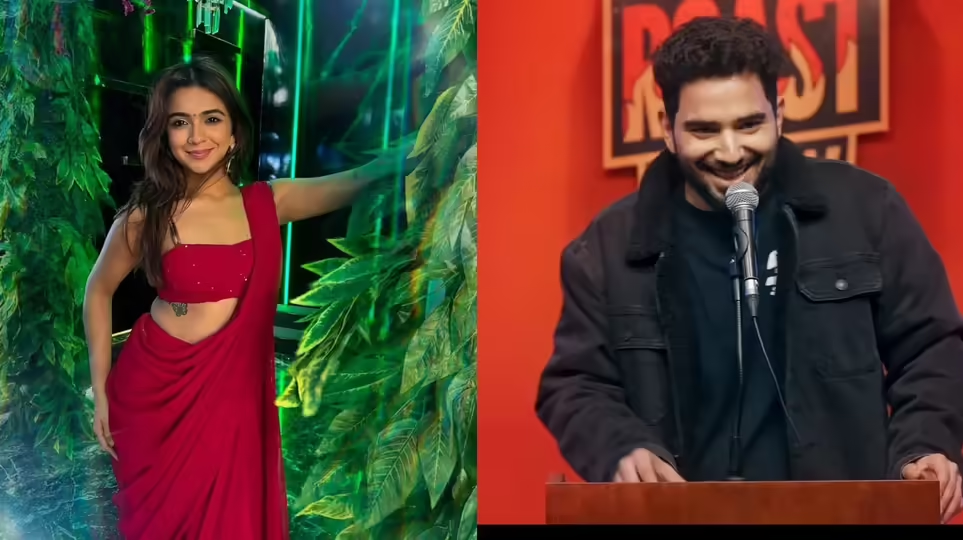India’s Got Latent Row: YouTubers Face Legal Heat as NCW Grants Postponement Over Death Threats and Travel Commitments
Mon, 17 Feb 2025

The National Commission for Women (NCW) has rescheduled hearings for several prominent YouTubers and influencers, including Ranveer Allahbadia, Samay Raina, and Apoorva Mukhija, after they failed to appear in person for questioning on February 17, 2025. The summons were issued in response to a controversy surrounding derogatory remarks made during an episode of the comedy show India’s Got Latent, which sparked widespread public outrage and legal action across multiple states. The NCW acknowledged the creators’ concerns over personal safety, logistical challenges, and prior international commitments, granting revised hearing dates between March 6 and March 11, 2025. The controversy stems from a now-deleted episode of the YouTube show, hosted by Samay Raina, where podcaster Ranveer Allahbadia posed a sexually explicit question to a contestant: “Would you rather watch your parents have sex every day for the rest of your life or join in once and stop it forever?” The remark, deemed vulgar and offensive, triggered backlash from viewers, activists, and government bodies. The episode was subsequently removed following interventions by the Ministry of Information & Broadcasting and the National Human Rights Commission (NHRC). Legal complaints were filed in Mumbai and Guwahati, accusing the creators of promoting obscenity and violating societal norms. Maharashtra Police registered FIRs against 30 individuals linked to the show, including producers Tushar Poojari and Saurabh Bothra, who face criticism for their silence and failure to respond to initial summons. Ranveer Allahbadia, popularly known as BeerBiceps, cited death threats and security risks as reasons for requesting a three-week postponement, which the NCW accepted, rescheduling his hearing to March 6. Apoorva Mukhija, known as Rebel Kid, similarly expressed safety concerns and sought permission to attend virtually until conditions stabilize; her hearing was also moved to March 6. Samay Raina, currently in the U.S. on a pre-planned tour, assured the Commission of his cooperation upon his return to India, leading to a March 11 hearing. Comedian Jaspreet Singh, touring in Paris, will appear on the same date after his return. Ashish Chanchlani, represented by his lawyer due to illness, was granted a March 6 hearing, while producers Poojari and Bothra face renewed summons after ignoring initial notices. Balraj Ghai, another panelist abroad, will appear on March 11. The NCW emphasized the gravity of the situation, stating that the remarks violated the dignity of individuals and undermined societal values of equality and mutual respect. Chairperson Vijaya Rahatkar underscored the need for accountability, particularly given the show’s influence on younger audiences. Meanwhile, Maharashtra Cyber Cell rejected Samay Raina’s request for virtual testimony, demanding his physical presence by February 18. Ranveer Allahbadia, who publicly apologized and approached the Supreme Court to consolidate multiple FIRs, faces additional scrutiny from Mumbai Police, summoning him on February 24. Public reactions remain polarized. While some netizens criticized the creators for crossing ethical boundaries, others defended the show’s “raw” and “unscripted” format. Judges Apoorva Mukhija and Ashish Chanchlani told Mumbai Police that the show encourages spontaneous dialogue, with participants purchasing tickets to fund the winner’s prize. However, critics, including The Kerala Story director Sudipto Sen, condemned the normalization of vulgarity under the guise of modernity, stressing the responsibility of educated influencers in a society with significant literacy gaps. The controversy has broader implications for digital content regulation in India. Raghu Ram, a panelist on the show, likened the backlash to the 2015 AIB Roast controversy, where humor clashed with societal expectations. Samay Raina’s earlier remarks about maintaining the show’s independence—refusing to edit expletives or jokes—resurfaced, highlighting tensions between creative freedom and cultural sensitivities. As legal proceedings unfold, the case underscores the challenges of balancing free expression with accountability in India’s rapidly evolving digital landscape. With hearings postponed and investigations ongoing, the outcome could set precedents for how platforms and creators navigate content boundaries in the future.
